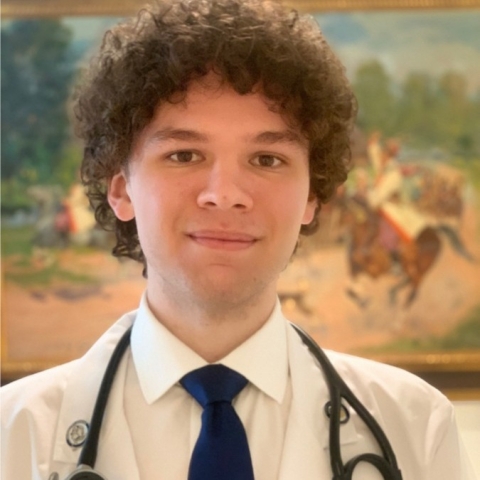Alexander Lekan – Forster Family Foundation Scholar
1st Year Scholar, MD/PhD candidate, Tumor Biology
Georgetown University
Research:
Identifying treatment strategies to increase immune cell accumulation in pancreatic cancer in order to improve patient responses to immunotherapy. Specifically, utilizing high throughput spatial imaging technologies to identify the impact of increasing immune cell-tumor cell interactions on promoting anti-tumor effects in pancreatic cancer.
How Will Your Research Benefit Society?
Pancreatic ductal adenocarcinoma (PDAC) is the most common form of pancreatic cancer and has a 5 year survival rate of 12%. Immunotherapy has had limited efficacy in PDAC due to the immunosuppressive nature of the PDAC tumor microenvironment (TME). Thus, identifying factors that limit immunotherapy efficacy in PDAC is of the utmost importance. Dipeptidyl peptidases (DPPs) are a family of enzymes involved in fibrosis, metabolism, and cancer that have been found to be overexpressed in PDAC. Treatment with BXCL701 (701), a pan-DPP inhibitor, enhances anti-tumor effects of anti-PD1 antibody (α-PD1) therapy, in part by increasing activated T and Natural Killer cell infiltration. Significantly, I have found that pan-DPP inhibition is required for optimal tumor clearance, induces intra-tumoral production of immune activating cytokines, and dramatically reduces fibrosis. In order to further examine the impact of DPP inhibition on immune-tumor cell interactions, I will utilize a spatial multi-omics platform called Imaging Mass Cytometry (IMC), which is a multiplex imaging system that uses up to 40 metal-conjugated antibody markers to gain information of both tissue structure and single-cell data to conduct higher order proteomic single cell analysis. These results will provide insights into the impact of DPP inhibition on immune cell-tumor cell interactions and identify potential targets that impact therapeutic efficacy of immunotherapy.
How will an ARCS Award Benefit Your Research?
Although spatial proteomic imaging technologies are increasing in popularity, reagent costs are still a barrier. Funds from the ARCS award will allow me to overcome these barriers to address my hypothesis and progress my thesis project.
Career objectives:
My goal is to become a leading physician-scientist in the field of cancer immunology, working to develop new therapies for pancreatic cancer. Simultaneously, I hope to serve as a leader for the next generation of scientists, advocating for science education and research.

